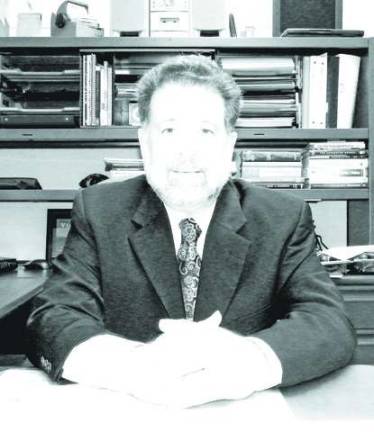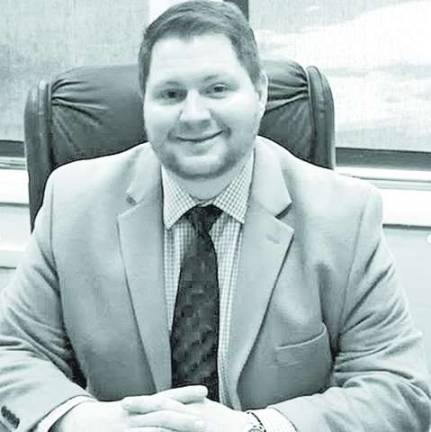High Point summit planned for Monday


SUSSEX BOROUGH — Look out, world; High Point High School has gone BYOD.
No, that’s not internet slang or SMS language. BYOD, or Bring Your Own Device, allows students the opportunity to USE High Point’s WiFi network to access the Internet and Google Applications for Education via cellular phones, tablets and laptops during school hours for educational purposes only.
This coming Monday, High Point will host New Jersey’s first-ever combined Google Apps & BYOD Summit. More than 375 educators from the tri-state are already registered for the Google-endorsed summit.
Author Eric Sheninger of Digital Leadership will be present.
Sheninger is a Senior Fellow and Thought Leader on Digital Leadership with the International Center for Leadership in Education and Scholastic Achievement Partners.
An award-winning principal at New Milford High School, Sheninger oversaw the implementation of the use of social media and web 2.0 technologies at New Milford High as tools to, according to his website — ericsheninger.com — “facilitate student learning, improve communications with stakeholders, enhance public relations, create a positive brand presence, discover opportunity, transform learning spaces and help educators grow professionally.”
Google Apps for Education (GAFE) is “an integrated communication and collaboration solution hosted by Google,” said Robert Zywicki, High Point High School director of Curriculum, Instruction, and Technology. “High Point students, faculty and staff will be able to communicate, store files and collaborate on documents, spreadsheets, and presentations from school, work or home, all with ease in a secure online environment.”
Some Google Apps include Classroom, Talk/Hangouts, Gmail, Drive and Sites.
“The High Point Summit is a unique opportunity for educators to connect and share best practices on the use of Google Apps and progressive pedagogies in a BYOD setting,” Zywicki said. “Also, High Point has hundreds of Chromebooks and desktop computers for students to use.”
The Oct. 13 professional development conference, taking place between 7:30 a.m. and 2:30 p.m., will feature five presentations for teachers: “Project-Based Learning (PBL) via Google Apps” presented by Katie Regan, “Student Research and Information Literacy Skills in a 1:1 Learning Environment” by Marci Zane, “Google Apps in K-8 Classrooms” by Dr. Nicole Luongo and Renee Evans, “Living La Vida Google: Two years with a Chromebook as My Sole Computer” by Patrick Higgins and “Engage Your Students and Expand Your Professional Learning Network with Twitter” by Krista Leh Rundell.
New York's Dobbs Ferry Union Free School District Superintendent Lisa Brady also will present “The Wired Superintendent” to administrators, while Zywicki will engage administrators with his presentation, “How High Point went 100 Percent Google in Six Months.”
High Point High Supervisor of Instructional Technology Mark Wallace will present “Lessons Learned from High Point’s Transition to BYOD” with High Point High School Principal Jonathan Tallamy.
Tallamy said he will discuss the last eight months, from planning to go BYOD, to its implementation.
"I will be covering the administration side of BYOD including logistical planning, development of our Responsible Use policy, student discussion, stakeholder communication and the opening day implementation,” he said.
“We’ll be telling our Google Apps & BYOD story, as well as showcasing the potential of many educational technologies," Wallace said. "We want to share our excitement with others so that Google tools and the use of Chromebooks can be implemented in other schools, as well. We are going to teach teachers, essentially, how to use technology in the classroom.”
After reading Sheninger’s book himself, Wallace said he was once again inspired to “try new things.”
“It made me think about what 21st century learning looks like—digital learning for a digital generation," he said. "The summit will help demonstrate the tools and skills that teachers should have in order to help students become successful digital learners, utilizing tools like Google Apps.”
Wallace will talk about how the school will execute the policy of allowing students to bring personal devices like cell phones to school. His presentation will cover infrastructure, protection of the network, cost and monitoring the BYOD network.